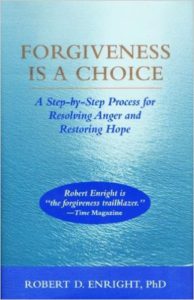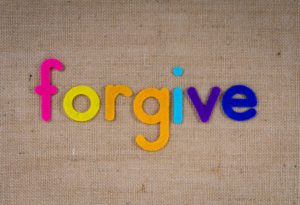Tagged: “injustice”
Is Forgiveness Always Appropriate When Faced with Serious Injustices?
Is forgiveness always appropriate when there is a deep unfairness? First, let’s examine the response a little more. When we ask this question, are we inquiring about a specific person or about the virtue of forgiveness itself? Here is where there is a crucial difference.

Image by Pexels.com
Since forgiveness is a moral virtue, we should ask our question of all virtues if our attention is on the virtue itself. As we broaden our view to focus on all moral virtues, we can consider the question’s opposite: For example, when is a quest for justice, one of the moral virtues, not appropriate? Put another way, can you picture a situation in which you might be arrested for intentionally acting in a just way? Would people condemn themselves for acting fairly? If not, then it appears to be the case that justice is always fitting in every situation. Is there ever a time when patience is inappropriate? How about showing kindness? I can hear someone say something like, “Well, I won’t be kind if someone is hitting me over the head with a frying pan.” I agree that your leaving the abuse is good because it is a protection for you. As a second possible response, you certainly are entitled to attempt removing the frying pan from the person’s grasp. You can act in either situation with kindness. Kindness is appropriate even in this instance. If kindness is used with other virtues (justice, courage, temperance) to help save the individual from doing the head-banging, then that is acceptable in the sense of being morally good.
My argument is that since all virtues are centered on the morally beneficial aspects of human interaction, then acting morally is always appropriate, and practicing forgiveness is one of these moral virtues.
The second aspect of the question (Is forgiveness always appropriate?) asks about the psychological suitability of practicing the virtue for any given individual. Does forgiveness make sense for any particular person all the time? This time, the answer is no, it is not always appropriate for the following reasons: a) the offended person may be too shocked by what happened to be ready to offer forgiveness at this time; b) the offended person may need to learn more about forgiveness to exercise forgiveness properly rather than some false form of it; and c) forgiveness is a supererogatory virtue that is not demanded of any one person at a particular time because it is not a virtue that society demands. It is the person’s decision to extend forgiveness or not on any particular occasion.
Is forgiveness always appropriate?
Yes, if we are talking about the quality of this term, specifically its quality of being a moral virtue.
Must, then, all people turn immediately to forgiveness when treated unjustly?
No, if we are discussing the psychological makeup of a certain individual, including both this person’s degree of hurt and understanding of forgiveness, as well as the specifics of the injustice, such as its gravity, duration, and time since it happened. Some people need time to be angry, to sort out what forgiveness is, and then move forward with it when the person is ready.
![]()
The Invisible People and Inherent Worth
Have you ever visited people who are in a maximum-security correctional institution? After going through many secured doors, there you are with some people who literally never will walk out of those doors. In one of my visits to such a facility, I sat with 10 men who recently went through a forgiveness program. I was eager to hear about their experience with it. They liked it.

Image by Pexels.com
What struck me the most, actually, was not their kind and positive response to the forgiveness program, but instead was their view of who they are to other people. “Once you are in here, you become invisible,” one man asserted. The others perked up at this point and agreed with the statement. “We are invisible” was the resounding theme.
It seems that this proclaimed idea was deepened by the forgiveness program, in which each man learned about, and thought deeply about, an important tenet of forgiveness: We are all persons of worth, not because of any bad behavior, but despite this. Each man learned this and applied it successfully to those who deeply abused them while they were in childhood or adolescence. Those who hurt them have worth despite the cruelty. This view helped them to forgive and to shed clinical levels of anger, anxiety, and depression.
Despite the encouraging findings of mental health improvement in the men, some people might wonder: Is it possible that the forgiveness program had a negative effect on them? Here is what I mean: By studying the vital idea of the inherent worth of all people, these men might now become sad or angry that others are not necessarily treating them with this kind of built-in worth. In other words, might the forgiveness program have accentuated this negative situation for them, leading now to the view that they are “invisible” to others and further to the view that they definitely should not be treated this way? The contrast between who they truly are as persons (which is persons of worth) and how they are viewed and treated by others might have become more clear because of the forgiveness program. Yet, I do not see this as a negative for the following four reasons.
First, the forgiveness program did not create the awareness that they are “invisible.” It may have clarified this, but the idea already was in their mind. I say that because, in relating their stories to me, they shared that they were aware of this reality soon after entering the institution. Second, with the forgiveness program, they learned this: Even if people do not treat them as persons of worth, they now can treat themselves as persons of worth. Third, they now have the tool, forgiveness, to forgive those who treat them as less worthy than who they really are. Fourth, those who have learned this lesson of forgiveness can now be supports for one another as they show each other this: We are each valuable; we each have built-in worth.
As one example of extending inherent worth to others, one person said this to me: “I am never getting out of prison. Yet, I now have a new purpose which is to help my cell mates learn to forgive.” He developed a new purpose in life after a forgiveness program. He has made a commitment to easing the pain in others……because he sees that they have inherent worth and are worthy of emotional healing from what they have suffered in the past.
We need to widen our view of those in corrections. What can we do so that we see their inherent worth? What can we do to communicate this to them, without the error of extremism by falsely claiming that, because of this worth, they now can be fully trusted outside these walls and should be unconditionally released? In other words, we do not want to make the philosophical error of equating worth with unmitigated trust and therefore call for the release of all in correctional facilities that actually might keep others safe.
Being “invisible” is hard. Knowing deep down that one has infinite worth, despite this treatment by others of being ignored, can protect people from the lie that they have no value. Forgiveness can restore a person’s sense of value even when others look away.
![]()
The Two A’s of Forgiving: Awareness Before Action
What precisely are you doing and not doing when you begin to forgive someone for something this person has done to you? I think the most basic problem is this: defining forgiveness before we actually practice it.

Image by Pexels.com
Some would argue that you are acting weakly because only the weak are able to forgive; the strong always win out, much likeNietzsche proclaimed in the late 19th century. Some would argue that returning to an unhealthy situation exposes you to abuse, but this confuses reconciliation and forgiveness. Even if you are disregarding the person who treated you unfairly, some would argue that you are moving on by “forgiving.” Not one of these truly conveys what forgiveness actually is.
Goodness toward those who have treated us unfairly is what forgiveness is. This goodness can take the form of giving up resentment, showing mercy and compassion, and even showing agape love (though this love may take some time to develop and small steps toward it may be necessary). See the reference below for more information on agape love. Most of the time, when people argue about forgiveness, the main point of contention is usually its definition. If the definition is incomplete or wrong, then the process of going about forgiving someone who offended may be distorted. Awareness before action is the key to beginning forgiveness well.
Enright, R.D., Wang Xu, J., Rapp, H., Evans, M., & Song, J. (2022). The philosophy and social science of agape love. Journal of Theoretical and Philosophical Psychology, 42(4), 220–237. https://doi.org/10.1037/teo0000202
![]()
On Contemplating the Forgiveness Process to “Do No Harm”
 There is a part of the forgiving process that we have described in two distinct publications, The Forgiving Life and Forgiveness Is a Choice, where we ask the forgiver to “Do no harm” to the one who has been unfair. In actuality, the concept of “Do no harm” serves as a bridge to the much more challenging task of loving someone who has wronged you. Even though it’s an earlier and purportedly simpler step in the process, “Do no harm” is anything but simple.
There is a part of the forgiving process that we have described in two distinct publications, The Forgiving Life and Forgiveness Is a Choice, where we ask the forgiver to “Do no harm” to the one who has been unfair. In actuality, the concept of “Do no harm” serves as a bridge to the much more challenging task of loving someone who has wronged you. Even though it’s an earlier and purportedly simpler step in the process, “Do no harm” is anything but simple.
 Three things are meant by “do no harm”: 1) Don’t try to deliberately hurt the person who offended you (such as being impolite); 2) Don’t do covert harm (such as sneering, ignoring at a gathering, or remaining impartial toward this one who shares personhood with you); and 3) Don’t hurt other people because of your inner discontent from the one who was unfair to you. Stated differently, it is surprisingly simple to channel your resentment toward Person X onto Persons Y and Z. Perhaps it is a sign that you are projecting anger from a past encounter onto your present interactions if people have to inquire, “What is wrong with my friend today?”
Three things are meant by “do no harm”: 1) Don’t try to deliberately hurt the person who offended you (such as being impolite); 2) Don’t do covert harm (such as sneering, ignoring at a gathering, or remaining impartial toward this one who shares personhood with you); and 3) Don’t hurt other people because of your inner discontent from the one who was unfair to you. Stated differently, it is surprisingly simple to channel your resentment toward Person X onto Persons Y and Z. Perhaps it is a sign that you are projecting anger from a past encounter onto your present interactions if people have to inquire, “What is wrong with my friend today?”
It’s wise to assess your level of resentment at these moments and consider who you should forgive today. Consider asking yourself: As I offer forgiveness, am I “doing no harm”? Because of what I am going through, am I exercising caution so as not to hurt innocent people?
I’m offering you a challenge today: Don’t hurt anyone today. Do the same tomorrow. Do it the day after that.
![]()
What Moral Virtue Underlies Forgiving?
Some say the underlying moral virtue of forgiveness is respect as we see the worth in others. I make the claim in the book, The Forgiving Life, that the deepest moral virtue underlying forgiveness is love, particularly agape. Here is an excerpt on agape from The Forgiving Life (2012):

Image by Pexels.com
Love, properly understood, reaches higher and goes farther in explaining who we are compared with rationality, free will, and even good will. According to Aristotle, there are four different kinds of love: the natural love that exists, for example, between a mother and her child (storge in Greek), the love that develops strongly among friends (philia), the love that is forged between romantic partners (eros), and a fourth love (agape) based on service to others (developed more fully in medieval times by Thomas Aquinas). The first three kinds of love (storge, philia, and eros) depend for their proper expression on agape or service love (loving even when you do not feel like it, loving when you are tired, loving when the other seems unlovable). C.S. Lewis, who wrote The Chronicles of Narnia, makes this point of the philosophical centrality of agape. Agape, according to Lewis, is the highest form of love precisely because it nobly and courageously perseveres when the other kinds of love say, “Ouch! I’m outta here! Run!” With agape love, a person chooses to love, even when it hurts. In other words, it comes from a free will (we choose it) and from both a good will (we choose it to help others even if we are uncomfortable) and a strong will (we do not run away from and carry on despite the difficulty), and it makes sense (coming from a position of rationality).[1] Agape love has an inherent goodness within it that is missing from rationality and free will.
Further, without a sense of love which is deliberately in service to others, all of the other loves can be distorted and not be inherently good in themselves. Take eros as an example. Is it the best kind of romantic relationship when the partner degenerates into a “What’s in it for me?” pattern? Agape balances the tendency in eros to seek one’s own pleasure primarily and says, instead, “How may I serve you?” Agape is a kind of love that has dignity, quiet, and strength as it seeks to build up and even restore others. Agape helps us to see others as possessing inherent worth, a quality that is not earned. The paradox of agape in the context of forgiveness is that as a person reaches out to others who have been unjust, he experiences considerable emotional healing.
I used the word “balance” in the paragraph above. Balance was an important idea for Aristotle, who called it temperance. Each expression of love, whether it is storge, agape or another variety, itself needs balance unless it becomes distorted by overdoing or under-doing it. For example, if people distort agape by begrudgingly overdoing it, they could perform supposed acts of love with deep resentment, deplete their own reserves, or burn out, without being able to love well at all. If people under-do agape, their efforts may be half-hearted, even indifferent as they preform this lazy distortion of agape. The point is to strive for a good, solid expression of service love without overdoing or under-doing it. Wisdom helps us to know how much is enough.
Love then, in the form of agape, may be the most fundamental and the most important aspect of our being for this one reason: It is inherently good in that, by its definition, we seek meaningful and healthy relationships with others, and therefore it is good for others and for us. All other virtues, by themselves, do not necessarily fulfill any lasting connection between and among people. Justice, by itself, can be a rather cold virtue as, say, a magistrate almost indifferently sentences a person as a rightful punishment for a crime. Courage, by itself, can be a grim duty as, say, a soldier goes to battle because he is ordered to do so. If the need for meaningful connections is part of our religious, ethical, psychological, and biological essence, then agape love is central to that essence. If the fulfillment of meaningful connections is part of our end-point as human beings, then the mature understanding and expression of agape love is a major part of that end point or what philosophers call our summum bonum or greatest good to which we strive.
[1] Lewis, C.S. (1960). The four loves. New York: Harcourt, Brace, & World. I can almost hear Kant say something like this: Love is an end-point of morality (what we are striving for) whereas a good will is what we need fundamentally at the beginning to make any moral response possible. I would argue, instead, that love is both a fundamental issue (existing at first in us as a capacity and as an actuality developing slowly in small ways) and as an end-point. It is our essence (our fundamental building block of morality, along with rationality, and a free, good, and strong will) and its perfection is our goal (as we grow stronger in it with practice and reflection).
![]()



